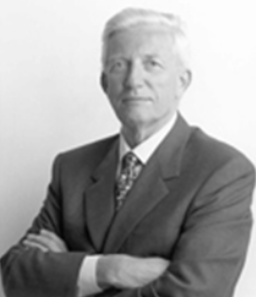Klaus Liesen
(businessman) | |
|---|---|
 | |
| Born | 15 April 1931 Cologne, Germany |
| Died | 30 March 2017 (Age 85) Essen, Germany |
| Nationality | German |
| Member of | European Round Table of Industrialists |
One of the ten most powerful "grey eminences" in the German economy. Bilderberg/1981 | |
Klaus Liesen was a German businessman, and one of the ten most powerful "grey eminences" in the German economy[1] He attended the 1981 Bilderberg meeting.
Education
Klaus Liesen studied law and also attended lectures in economics and business administration. In the winter semester 1951/52 graduated from the University of Göttingen. Liesen received his doctorate in 1957.
Career
After starting his career at Unilever, he worked for three years in the Federal Ministry of Economics in Bonn. In 1963 he moved to Ruhrgas AG and was assistant to the board, head of the legal department, head of gas purchasing and transport and head of sales. In 1976 he released Herbert Schelberger as CEO of Ruhrgas AG.
With the monopoly-like position in long-distance gas technology and gas trading in the Federal Republic and the financial and energy policy interdependencies in which Ruhrgas AG was involved, the company was one of the important players in the so-called Germany AG, a network of tightly interconnected German corporations controlling the economy until globalization at the end of the 1990s. In June 1996, after 20 years as chairman, Liesen left the board of Ruhrgas AG and Friedrich Späth became the new chairman. Liesen then took over from Dieter Spethmann as Chairman of the Supervisory Board of Ruhrgas AG.
He had been associated with VEBA as a member of the Supervisory Board since 1991. As Chairman of the Supervisory Board of the newly founded E.ON, he shaped the company from 2000 to 2003 and accompanied the merger with Ruhrgas AG. In 2008 he left the E.ON Supervisory Board.
He was Honorary Chairman of the Supervisory Boards of Ruhrgas AG (since 2003) and Volkswagen AG (since 2006). In 2002, he was classified by Manager Magazine[2] as one of the ten most powerful "grey eminences" Iout of 50) in Germany AG.
In 2003, after seven years in office, Liesen passed on the chairmanship of the supervisory board of Allianz AG, to which Liesen had belonged since 1983,[3] to Henning Schulte-Noelle. Liesen relinquished his position as Chairman of the Supervisory Board of the Volkswagen Group, which he had held since 1987, to Ferdinand Piëch in 2002 when he changed from Chairman of the Board of Management to the Supervisory Board.
Liesen came into the public eye with the so-called Lopez Affair: largely thanks to Liesen's skilful mediation, the controversy between General Motors and Volkswagen was settled peacefully. In 2006, Liesen withdrew from the Supervisory Board of TUI AGback, in whose presidency he had accompanied the transformation of the Preussag conglomerate into the world's largest tourism group.
Liesen was active in various foundation boards and boards of trustees, e.g. r Stiftung Wissenschaft und Politik[4], the Alfred and Clare Pott Foundation (executive director since 1980) in the Stifterverband für die Deutsche Wissenschaft (board member since 1978; chairman of the board from 1980 to 1993), the Fritz Thyssen Foundation (board member from 1988 to 2003 ; Chairman since 1999), the Robert Bosch Foundation, and other bodies. From 1952 he was a member of the Corps Brunsviga Göttingen.[5]
Event Participated in
| Event | Start | End | Location(s) | Description |
|---|---|---|---|---|
| Bilderberg/1981 | 15 May 1981 | 17 May 1981 | Switzerland Palace Hotel Bürgenstock | The 29th Bilderberg |
References
- ↑ https://web.archive.org/web/20170331031735/http://www.faz.net/agenturmeldungen/dpa/industriemanager-klaus-liesen-ist-tot-14950280.html
- ↑ http://www.manager-magazin.de/unternehmen/maechtigste/a-247668.html
- ↑ https://web.archive.org/web/20070927223110/https://www.allianz.com/de/allianz_gruppe/presse/news/unternehmensnews/personalien/news35.html
- ↑ https://web.archive.org/web/20070927173543/https://www.swp-berlin.org/other/aufgaben.php?page=3
- ↑ https://de.wikipedia.org/wiki/K%C3%B6sener_Corpslisten